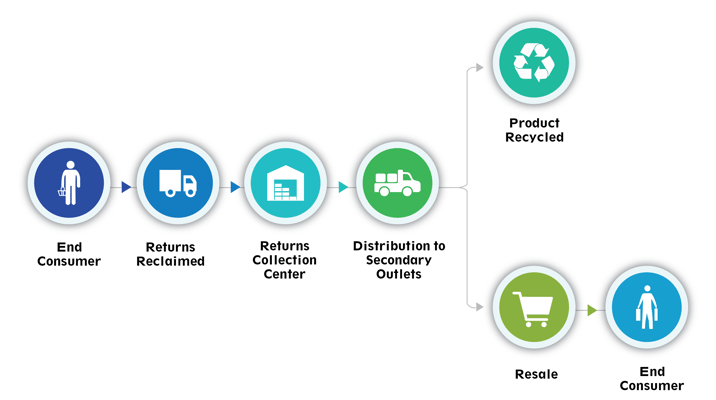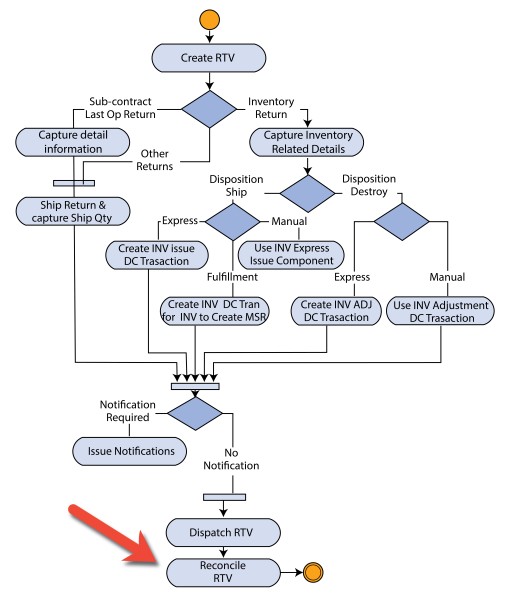Automate the reconciliation process for returns, reducing errors and improving accuracy in tracking and handling return discrepancies.
Reverse logistics is the intricate process involved in returning consumer goods to their original point of origin. In this complex supply chain maneuver, unwanted items are first returned by consumers before being sent to a collection center.
From there, products undergo preparation for redistribution to secondary outlets, where they are either recycled or resold. This demanding process requires meticulous coordination among all segments of the supply chain. While forward logistics focuses on product specifications and packaging, reverse logistics introduces various challenges.
Distributors, acting as intermediaries between retailers and manufacturers, must efficiently manage the flow of returns to maintain competitiveness. Failure to handle returns effectively can lead to significant profit losses, as exemplified by increased warehouse costs, missing items, incorrect shipments, and unreconciled returns variances.

Return Variance Analysis is a critical process that involves reconciling differences between Return to Vendor (RTV) and Return to Manufacturer (RMA) documentation. This meticulous procedure requires reviewing RTV details, including quantity and pricing, and comparing them against supporting RMA information.
Due to the time-intensive nature of this task and the need to navigate multiple systems concurrently, errors can arise, leading to potential financial losses. Manufacturers and distributors often struggle with inefficient returns management, especially during peak periods like the holiday season.
Variances may occur due to discrepancies in tracking numbers, pricing data, or the categorization of returned items, causing additional complications. Efficiently addressing these variations is crucial to maintaining financial accuracy and preventing unnecessary challenges in the supply chain.
A real-life case study highlights the struggles faced by a major distributor dealing with a high volume of vendor chargebacks from numerous retailers, leading to significant financial losses.
Communication Overload
Managing communication with manufacturers, retailers, and customers became daunting due to the sheer number of suppliers, products, and retailers involved, creating a complex web of interactions.
Soaring Return Rates
The distributor grappled with a substantial influx of returns, reaching 5,000 per month and tripling during the holiday season, exacerbating the challenges in processing and handling returns efficiently.
Lengthy Return Processing Delays
Excessive delays in processing returns, sometimes taking months, resulted in substantial financial losses amounting to hundreds of thousands of dollars due to unreconciled returns variances.
Limited Progress Despite Efforts
Despite implementing automation and increasing staff, the distributor faced limited progress in resolving return issues, primarily hindered by insufficient internal investments.
iNymbus addresses challenges faced by distributors in returns management through an innovative solution using Robotic Process Automation (RPA), enhancing efficiency and reliability. Automated Efficiency
iNymbus eliminates manual inefficiencies by automating the returns process, allowing seamless navigation through multiple systems without extensive human intervention. Strategic Focus with RPA
Leveraging RPA, iNymbus's solution frees up employees from repetitive manual tasks, enabling them to redirect efforts towards strategic goals and essential analytical functions. Seamless Data Integration
The automated system integrates data from ERP systems, performs validations between systems, and reconciles line-level details from web portals, ensuring accurate and reliable returns processing. Enhanced Workforce Productivity
iNymbus's technology significantly increases the available workforce by automating routine tasks, empowering employees to engage in more meaningful and analytical aspects of returns management.
We invite you to experience the future of freight claim management. Contact us to schedule a personalized demonstration and explore how our Automated Freight Claims Management Software can propel your organization forward. At iNymbus, we're committed to redefining the way you handle freight claims, one automation at a time.